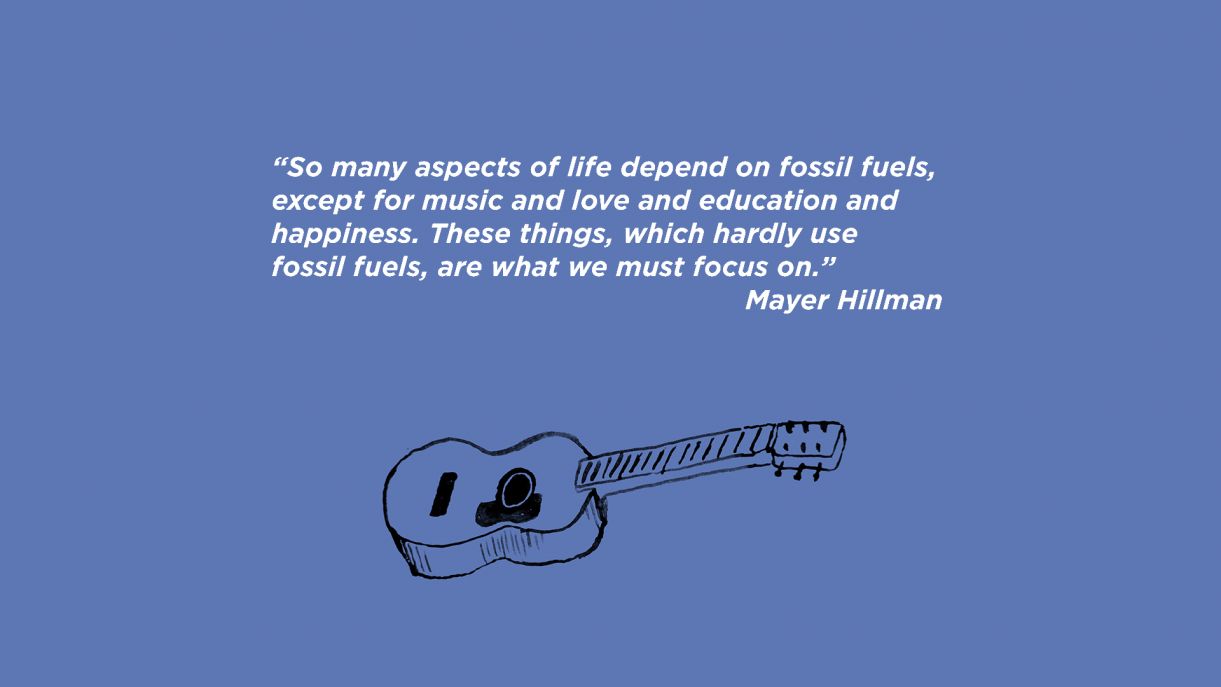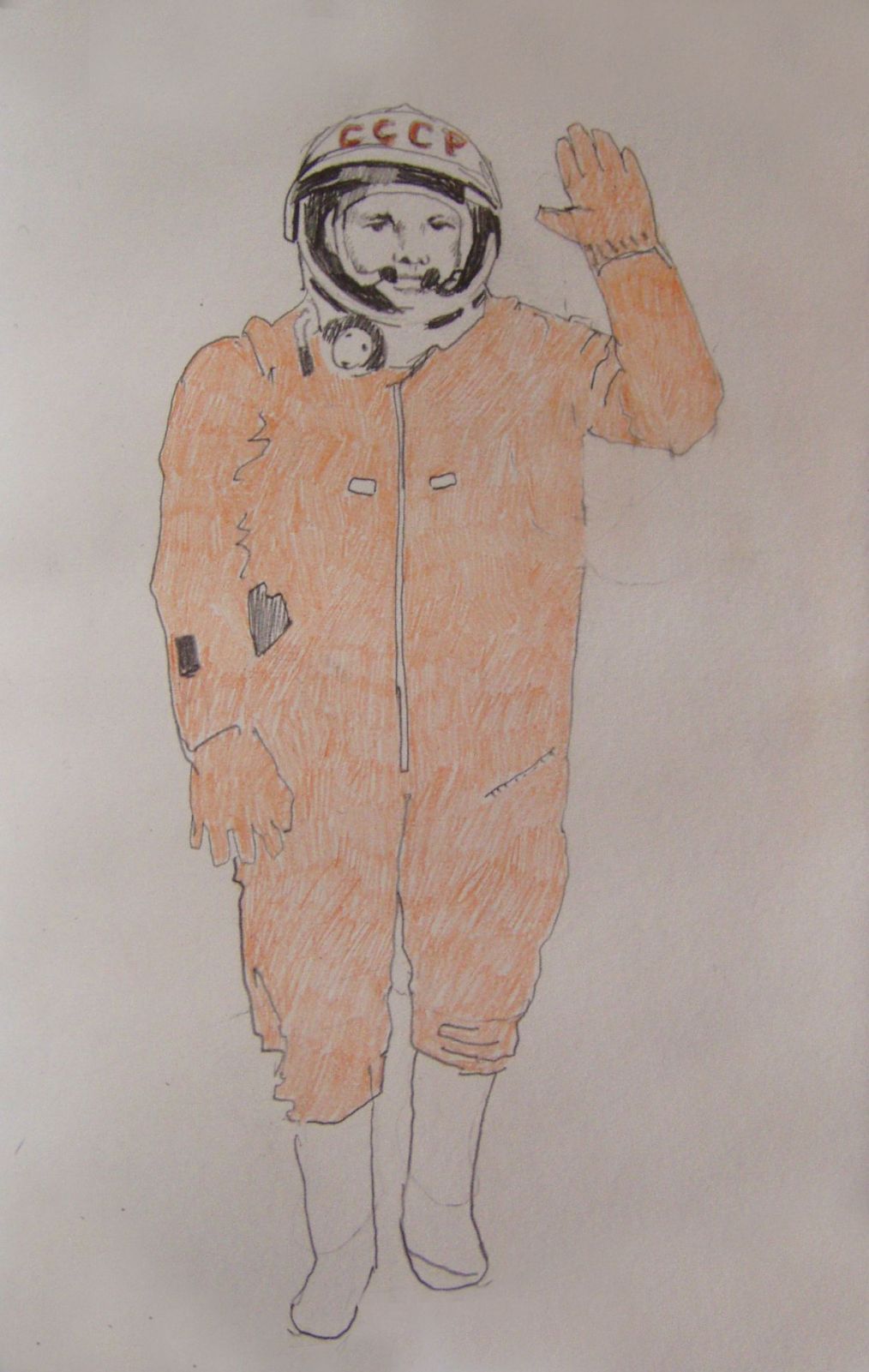Oto Hudec, Artist
2019Both in Bratislava and Košice there are public spaces, which are the place for all kinds of demonstrations and movements. People were demonstrating in these spaces during the last regime (to change the regime) and they are gathering there now to change the new government. If the government or a politician crosses a certain line than we have to do something, otherwise it will get worse and they can do anything. So that is that is the main reason why we should demonstrate.
The fact that we now have Zuzana Čaputová, a progressive, as President is partially a result of the movement that demonstrated and grew from the killings of the investigative journalist Ján Kuciak and his partner Martina Kušnírová . However, I think that there is one thing that this movement missed, and that the opposition has missed, and that is real left thinking. We didn’t turn these demonstrations into a larger social movement, so a large part of the population, maybe 50%, will not identify with the movement.
People who are in difficult social situations, their voices are not heard. We are so far from what they experience that we cannot even realize the troubles that they face. This division has grown in the past 10 years. I am not a defender of the former regime, but definitely the difference between lower classes and higher classes has increased since Socialism ended. There were many problems with the former system, but there was more social equality than in capitalist countries and so in last decades the inequality had grown in Slovakia. The gaps between classes, however, is growing everywhere, so it is not a question of post-Socialist countries, it is a worldwide problem.
The former Socialist regime was not good in an ecological way. As a country, we have less of an environmental footprint than before, with greenhouse gas emissions for example. But the reason is not only that we are so much better from technological advances, such as installing filters in chimneys, but rather the heavy industry in Czechoslovakia ended after Socialism when we lost all of the manufacturing factories. It doesn’t mean that we are consuming less, in fact we are consuming even more, but everything is produced outside of the country. So, the environmental footprint is outside of the country.

Drawing by Oto Hudec, 2019
I have been thinking about the work of Mayer Hillman. He is a social academic and one of the first people to think about solutions for the environment and urbanization. At almost 90 years old he is now basically saying that concerning the climate crisis that there is no hope and that accepting that there is no hope is actually part of a solution. I think about it in this way, that when a person has a terminal illness and you pass though different stages of reactions to that illness, finally, in the end all you can do is to appreciate life. And most of activities that define that are simple and do not cause harm to the environment. So along with my environmental activism I am working on appreciating people around us and life. This is something that is personal, but actually it might be a part of everyone’s transformation.
2009
My memories of the regime are limited, as I was 8 when it changed. I can remember winning a competition with a drawing of Aurora, the boat that started the revolution in Russia. For small children, it was a passion to draw this boat as it was presented as a peace boat. PEACE IN WORLD was the big part of communist propaganda.
Everybody in my school wanted to be a cosmonaut. The cosmonauts were the heroes, but I wanted to be a painter. Children in primary school were becoming young pioneers. Wearing the white shirt with the red scarf was a dream. It was like receiving a prize. Nobody understood the true meaning. At the time of the revolution, I had only reached the point where I was a ‘sparkle’, which was preparation for being a pioneer. During the celebration, we got some chocolate cakes, so it is a very nice memory. Being a pioneer was great propaganda and preparation for being a good communist citizen.
Oto Hudec, Tatra 613-1 VB, 300 x 160 cm, acrylic on paper, public art, Voices From the Center, 2009
I have a very foggy memory of a May Day celebration. Sitting on the shoulders of my father, I was waving a Czechoslovak flag as he pointed out the important people of the regime who were up on the tribunes. I had no clear opinion of them, but only understood that they were important so we were waving the flag for them. Then the regime changed, and the only visible difference for me as a child, was that we had to call our teacher "Mrs. teacher" instead of "comrade teacher".
Generally, the people in my country are quite divided. There is a large group of people, especially from the older generation, that believed in socialism. They were building the regime. Many of these people did not experience any violent contact with the system and enjoyed the comforts of socialism: guaranteed employment and less work; free health and social care; cheap products; and inexpensive culture. People did not need to make a lot of effort to survive or move forward as there were authorities to think for you.
If I could, I would interview my grandfather, but he died this past December. He created three agricultural schools in Slovakia and worked as a teacher, a director, and an inspector. He was an important person in the regime, but somehow he passed his life untouched by its violent side. For me he was an ideal man. His life philosophy was to not go against people and to bring a good mood to them. That is how he survived three or four different regimes. I don’t absolutely agree with this philosophy. I like to express my opinion, even if it is to the contrary, but I accepted his way of life.
Generally, it was the intellectuals that were the most critical of the regime. They wanted to understand their time, not just live it. They were also the group of people who were the most negatively affected. If I had lived in this period I would have been one of them because I would‘ve felt that invisible barrier limiting my freedom of speech and expression.

On the internet I found various websites that sell or somehow deal with the material objects from socialism. There were also comments from web browsers, many of them expressing nostalgia. I realized that these objects have become a part of our collective memory, and are more of a connection to our childhood, friends, and personal experiences then to the regime. I decided to make life-sized paintings of the objects on paper and then glue the finished pieces on the walls around public spaces in Slovak cities. It is not my aim, with these paintings, to add or steal anything from our memory but rather to show the objects of the past as they were. For each thing has it’s own complete story written on the inside.
One painting, of Tatra 613-1 VB, the prominent police car that was used for the transport of politicians I glued on the wall next to the New Bridge in Bratislava, one of the most celebrated and hated socialist projects in the history of the city. On one level, the car itself, designed by an Italian firm, represents a showcase of Czechoslovak technology. On another level the colors and signs are the marks of public security, the police of the socialist regime and, in the end, repression.
One painting, of Tatra 613-1 VB, the prominent police car that was used for the transport of politicians I glued on the wall next to the New Bridge in Bratislava, one of the most celebrated and hated socialist projects in the history of the city. On one level, the car itself, designed by an Italian firm, represents a showcase of Czechoslovak technology. On another level the colors and signs are the marks of public security, the police of the socialist regime and, in the end, repression.
This interview was in English.
Portrait of Oto Hudec 2019 by Lukáš Katriňák
Portrait of Oto Hudec 2009 by Janeil Engelstad